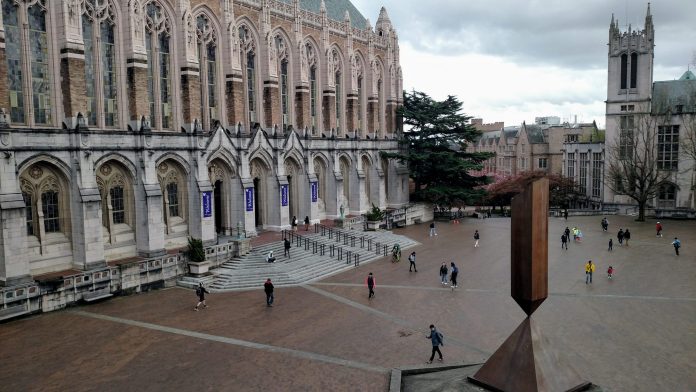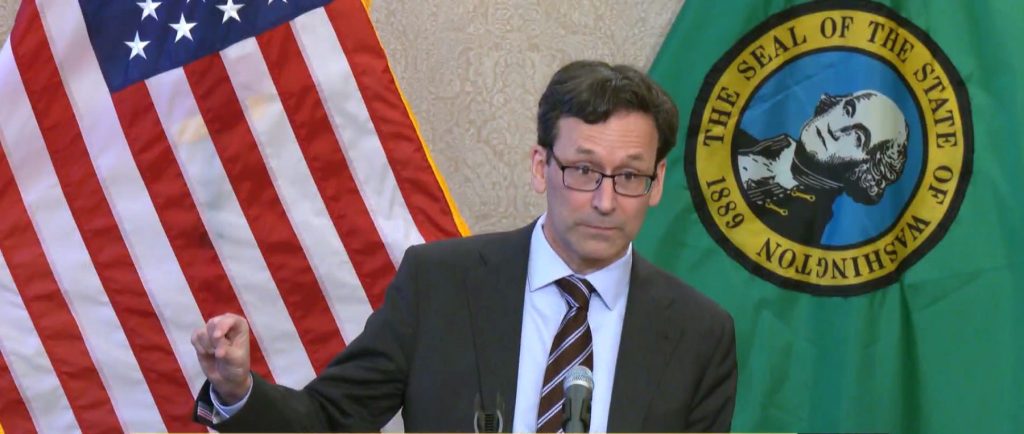
Democrats raised the cost of child care, cut early learning, and did nothing to stop the continual increase in higher education tuition, all out of fear of taxing the rich.
“We acted responsibly.” That is the accepted sentiment among Democrats in our state, and much of the media, regarding what they did and did not do in the past legislative session. If you start from not wanting to disturb the status quo much, and not facing up to a tax system that punishes working people while enabling the wealthy to coddle their millions, while starving revenue for public services, then, yes, Governor Ferguson and Democrats in the Washington Legislature acted responsibly.
If you consider rising housing costs, health care costs, tuition costs, child care costs and the state government’s inability to respond to and hammer down these costs, then you would say that the Governor and the Legislature acted irresponsibly. And if you consider what the Trump regime is throwing at our state, and what we should be doing to protect and reinforce our public services in the face of Trump threats and removal of federal funds, then what the Legislature did not do can only be summed up as disregarding the public interest.
Governor Ferguson and the state Legislature could have recognized the stagnation of wages, the increase in costs for fundamental goods and services, and diminishment of benefits faced by lower income working people. The Governor and the Legislature could have tailored policies and revenue to meet this economic reality and gained the support of workers, as opposed to plaudits from political operatives.
The overwhelming 26-point victory for Seattle’s social housing initiative which will be funded by a tax on excess compensation, that is, compensation exceeding $1 million, could have been replicated at the state level to reverse the decades-long transfer of money from the middle class to the already very wealthy and to meet social needs (of which housing is a foundation). This could have been the pathway for rebuilding support for universal shared economic benefits and rights.
But the Legislature, warned off by Governor Ferguson, stymied itself from moving forward, instead increasing the cost of public goods for working class voters.
What got increased? Tuition at public colleges and universities will increase 3% – that’s an added cost of $1,500 for a four-year degree at the University of Washington and $150 a year at Seattle Central Community College, while the income ceiling for the maximum college grant (which completely covers students’ tuition) was dropped from 65% of the median income to 60%. That’s less than $80,000 for a family of four. Dropping this ceiling eliminates financial help for working class and middle class families, even as tuition is rising. Of note is that this was a Democratic bill, with no Republicans supporting this rollback which penalizes working class students.

Under Ferguson’s leadership, Democrats heaped more child care costs on struggling families. The early ECEAP program (modeled on the federal Head Start program) was completely defunded. The already enacted expansion of ECEAP for three- to five-year-old kids was delayed for four years. The co-payments for the Working Connections Child Care program for low income and working class children were increased. If you are in a $50,000 two-person household, you will end up paying over $3,000 a year for child care.
And for the 11th year in a row, the Legislature refused to fund child care worker compensation which was voted into state law in 2005.
For years, Senator Marcus Riccelli has advocated for universal free lunches in public schools, as a wave of states led by Minnesota implemented in 2023. Nothing really radical about that… We know hungry kids can’t pay attention and that when some get lunches and others don’t, the stigma sticks with the poor kids. The cost for universal lunches: $115 million a year. That’s peanuts in a $78 billion budget, but too much for legislators to figure out how to fund.
There is nothing responsible about these cuts to public services. And there is nothing responsible about just waiting, as a sitting target, for the Trump cuts. Just considering Apple Health, Trump will take away from our state $1 billion a year. If we don’t make that up, half a million Washingtonians will lose health coverage. Trump will cut food stamps and school lunches for working class families. He already has cut jobs in the Forest Service, the National Parks, National Oceanic and Atmospheric Administration, and the list goes on and on.
A responsible Governor and Legislature would prepare for the coming storm with progressive taxation which enables us to maintain and expand public services, for health care, for early childhood education, for higher education, for maintaining our parks, for housing for the working class.
The instruments to do so are at hand: a wealth tax, as introduced by Senator Noel Frame (D-36th, Ballard) and approved by the Senate on the last day of the session. This would place a 5% tax on intangible assets in excess of $50 million — a minor inconvenience for the wealthy that would bring in $1.5 billion a year for public services.
We have a tax on capital gains which exceed $270,000. The Legislature just upped this tax to 9.9% for capital gains which exceed $1 million. If the Legislature put in place a similar tax on earned income, that would generate about $1 billion, while taxing 24,000 millionaires and billionaires, three tenths of one percent (0.3%) of our state’s population.
We have ways to Trump-proof the state of Washington. What is missing is the political will, to, for example, call a special session to protect our state from Trump and stave off draconian cuts. Finding that will would be the responsible thing to do.
Correction: An earlier draft incorrectly stated Washington’s 24,000 millionaires and billionaires composed three-tenths of the state’s population, accidentally omitting the operant “of one percent.” This has been corrected. We regret the error.

John Burbank (Guest Contributor)
John Burbank founded the Seattle-based Economic Opportunity Institute in 1998 and led it until his retirement in 2021.

